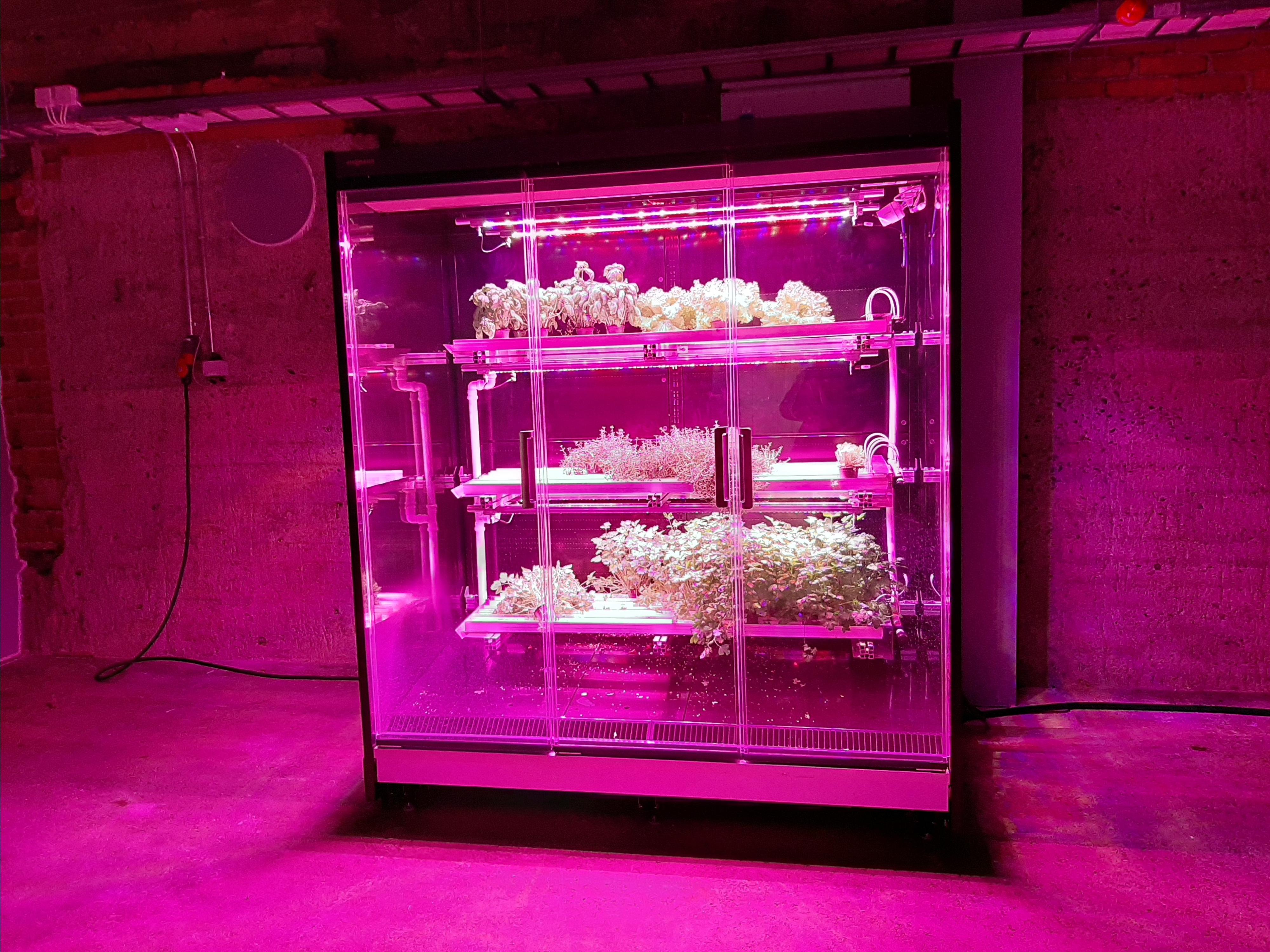The idea of urban food production is to produce food close to the consumer while saving natural resources. The KIEPPI project of the City of Tampere involves three companies who are testing new methods of growing food for citizens in a sustainable way.
The food of the future and future food production methods are growing in Hiedanranta, Tampere. One of the targets of the KIEPPI project is to promote different solutions for a circular economy, such as urban food production.
Urban food production refers to food that is grown in the city and is also known as urban farming. There are three local companies involved in the project: Blokgarden, Meluta and Netled. All these companies conduct their experiments in Hiedanranta, Tampere, in premises offered by the city.
Urban food production is new in Finland. We still need pilot projects in the field because as yet there are few commercially viable companies. By means of these projects, the companies have the opportunity to try out the preconditions for profitable operations, says Karoliina Tuukkanen, the project manager of the KIEPPI project.
Blokgarden is developing a service where the customers receive a pre-planted crop box in the spring that will be collected after the harvest in the autumn. In the KIEPPI project the company is experimenting with a seedbed based on closing the cycle. In a well-functioning closed cycle, the nutrients are not wasted, but the seedbed can be reused in the following year while still preserving the fertility of its soil.
Meluta is testing farming robotics in Blokgarden culture boxes. Farmbot, based on an open-source code, automatizes the three largest sectors in farming, as the robot takes care of sowing the seeds, irrigation, and weeding. The target is to find out how well the robot works and whether there is interest for it among the consumers or professional farmers.
Netled has designed a compact vertical farming system that can be fitted, for example, in grocery stores. Vertical cultivation occurs at several levels, and the idea is to obtain a big crop from a small surface area. In this project the company is testing a service concept where citizens and restaurants may order as many plants as they wish, such as herbs, which will then be grown for the customers. The target is to reduce food waste and the environmental impact produced by logistics.
Food production is consuming too much natural resources
Current food production methods consume too many finite resources, pollute the air, water, and soil as well as impoverish nature. Food production accounts for some 25 percent of humanity’s carbon dioxide emissions. According to the UN Food and Agriculture Organisation, fertile soil will, on current scenarios, cease to exist within 60 years.
Urban food production could be one way to move towards a more sustainable food system. Vertical farming consumes less water and energy than traditional greenhouse farming. Urban farming shortens the transport distances and reduces waste. In an urban environment it is possible better to recycle nutrients and biowaste of human origin. In addition, people could appreciate food better if they were more involved in its growth and cultivation.
It remains to be seen what role the city or new districts might play in terms of urban food production. For example, could land use or the allocation of business plots take into account what kind of sustainable business is desired in a new district? This is what we are solving in the KIEPPI project, Tuukkanen says.
The 6aika partnership model for a sustainable neighbourhood (KIEPPI) project, is developing sustainable neighbourhoods in Kera (Espoo), Hiedanranta (Tampere) and the Turku Science Park, where new business activities and workplaces based on the circular and sharing economy are being created.
If necessary, we will organize for representatives of the media a corona-safe opportunity to become acquainted with the pilots of the project, e.g. by means of remote access.
Further information
Karoliina Tuukkanen Tel. +358417301710
Email karoliina.tuukkanen@tampere.fi
Tommi Halonen Tel. +358444811007
Email tommi.halonen@tampere.fi
